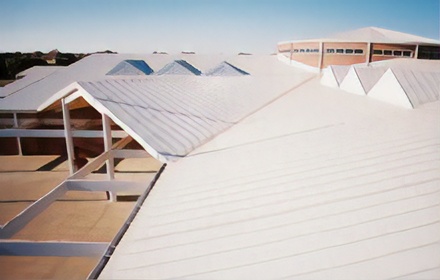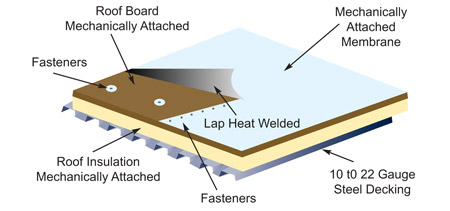Fire ratings for roofs are classified as either class a class b class c or are unrated if a roof covering cannot meet the requirements for any of these classifications.
Pvc roofing fire rating.
Building code fire resistance requirements building codes establish fire resistance requirements for roofs based on the type of construction e g concrete steel wood for the building.
Pvc roofing membranes such as sika s can self extinguish and resist the spread of flame.
To achieve a class a rating the roof must be effective against severe fire exposure.
Rigid pvc has an oxygen index of 45 50 compared to 21 22 for wood and 17 18 for most thermoplastics.
Pvc roof membranes are inherently flame resistant but as discussed above that s only one part of the equation.
Ib pvc roofing membranes can be used in many ul class a roof assemblies.
Vinyl roofing membranes contain additional fire retardants making this cool roofing material slow to catch or spread fire and self extinguishing when the source of heat or flame is removed.
Not all buildings are required to have a class a fire rating for their roofs.
A material with a loi value above 21 air contains 21 oxygen should not burn in air at room temperature and a value above 25 27 means that the material will only burn under conditions of very high applied heat.
This is proven if it can.
Pvc roofing membranes have passed fm and ul fire testing and have an unlimited slope approval.
Pvc roofs are also extremely durable long lasting and have high.
Class a is the highest rating offering the highest resistance to fire and unrated is the worst.
Class a roofing is the preferred choice for any home but this type of roofing is particularly important if you live in an area that is prone to wildfires.
Tested roof systems are fire classified class a b or c where the most fire resistant roof assemblies are class a and class c is least resistant.
These roofs are difficult to ignite burn slowly do not support combustion and self extinguish when the source of flame is removed.
These membranes show excellent resistance to spread of flame and self extinguish when the source of the flame is removed.
Pvc roofing membranes have a solid fire resistance rating.
The slope of the test specimen is preselected and since steeper slopes are more of a challenge due to melting material feeding the fire the rating applies to the maximum slope passed.
Ib pvc roofing membranes have passed stringent fire testing standards at both ul and fm and are approved for use in low steep and unlimited slope.
Experience maximum flame spread of 6 feet.
Polyvinyl chloride vinyl or pvc is a naturally fire resistant polymer a distinction between it and all other roofing plastics.
The maximum flame spread is 6 feet for a class a rated roof 8 feet for class b and 13 feet for class c.









